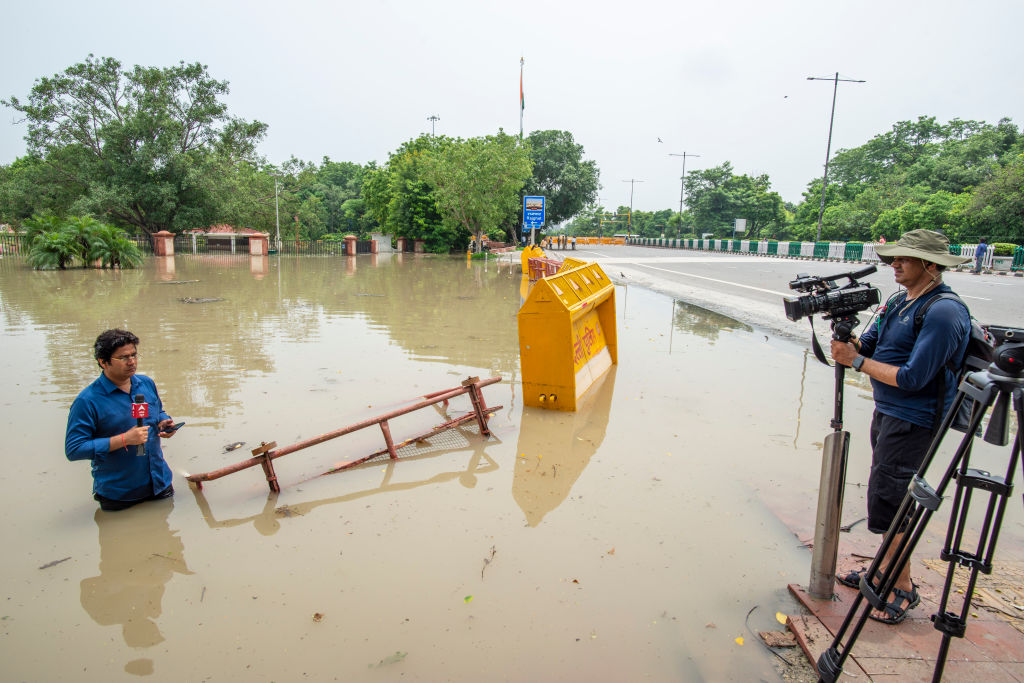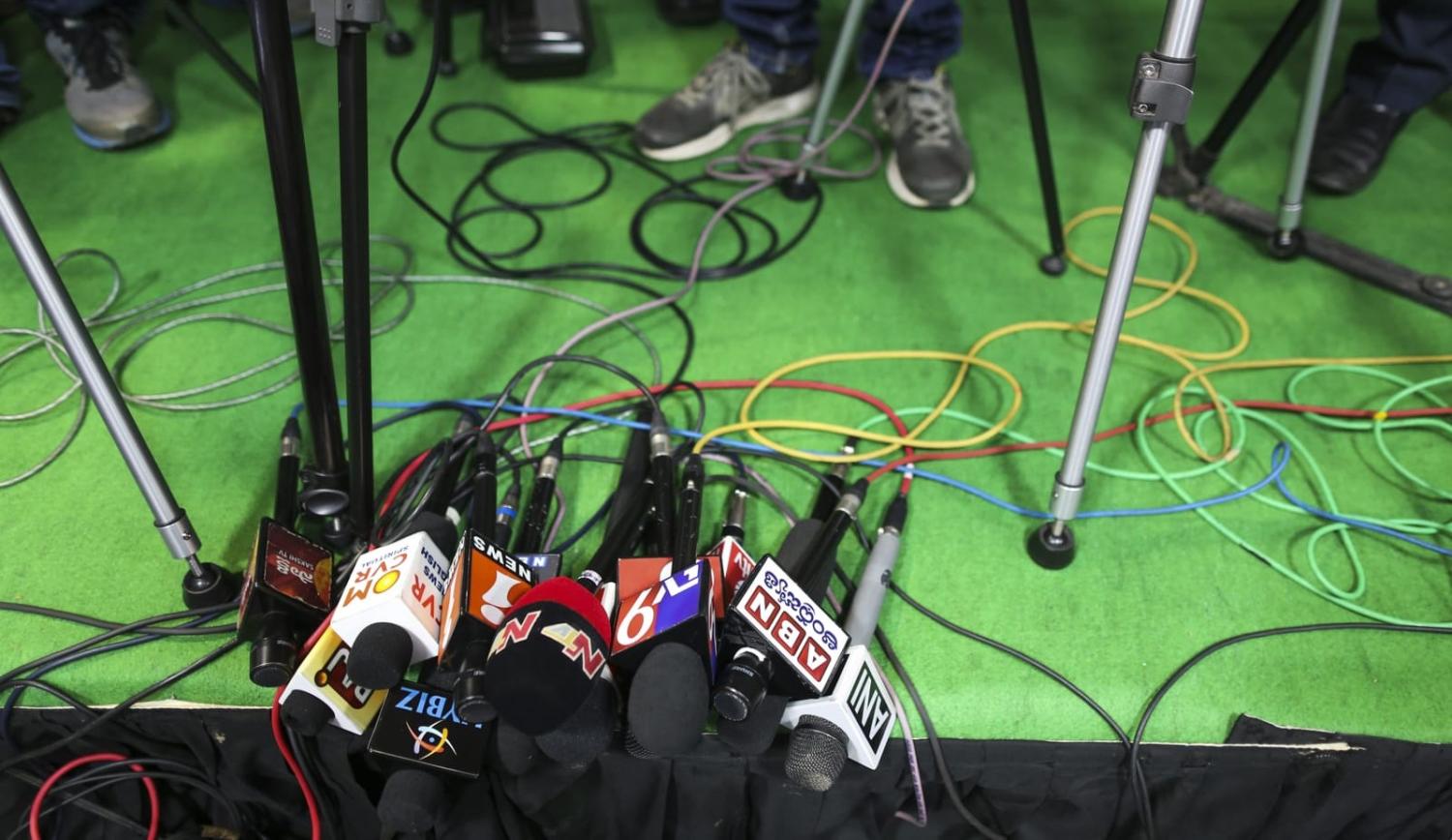As India gears up for its next general elections to be held in April and May, a concerning trend of curbing foreign voices has emerged, reflecting a broader erosion of democratic principles in the world’s largest democracy. Recent incidents, such as the notice served to French journalist Vanessa Dougnac threatening the cancellation of her Overseas Citizen of India (OCI) card, highlight a troubling pattern of intolerance towards dissenting views, both domestic and international.
India’s descent to the 161st position in the 2023 World Press Freedom Index is a stark indicator of the dismal treatment meted out to journalists critical of the government. Dougnac’s case raises concerns about how intolerant the Indian government has become towards foreign journalists, whose work is essential to inform the global population about activities in India, positive or critical. Similar targeting took place in 2019 when British Indian journalist Aatish Taseer was stripped of his OCI card as a response to his critical article titled, ‘India’s Divider in Chief’ published by Time Magazine. At that time Taseer said, “They are making an example of me and sending a warning message to other journalists.”
The Ministry of Home Affairs notification in March 2021, requiring OCI cardholders to obtain special permission for journalistic activities, further restricts the already limited space for foreign journalists operating in India. This silencing of foreign voices, coupled with the ongoing scrutiny faced by Indian journalists, stifles critical discourse and undermines the principles of a free press.
While the Ministry of Home Affairs is the final decision-making authority regarding foreign journalists, the Ministry of External Affairs (MEA) also plays a significant role in this domain. The MEA’s External Publicity and Public Diplomacy (XPD) division is responsible for processing visa applications and special permission requests from foreign journalists. Additionally, Indian missions have the authority to flag activities related to OCI cardholders. For instance, in 2023, journalist Angad Singh of Vice was blacklisted from entering India based on a recommendation from the Consulate General of India in New York, then headed by Randhir Jaiswal, who currently serves as the spokesperson for the MEA and leads the Ministry’s XPD division.
Last year the Indian government raised concerns about China’s actions in limiting visas of two Indian journalists on the grounds that New Delhi is using visa restrictions to hinder media contact between the two countries. Responding to these accusations, Arindam Bagchi, ex-spokesperson of the MEA said, “All foreign journalists, including Chinese journalists, have been able to pursue their journalistic activities in India without facing any limitations or difficulties in reporting or conducting media coverage.” However, the constant targeting of foreign journalists navigating uncertain work permissions and government scrutiny are contrary to Bagchi’s statement.

The scrutiny of foreign journalists might not be systematic in nature as mentioned by one OCI journalist, but the level of oversight from the Indian government is disturbing for these foreign correspondents as they are constantly worried that any criticism shall trigger a denial to work in the country.
Beyond the scrutiny faced by foreign journalists, the Indian government has also made it increasingly difficult for international civil society organisations to operate in the country. The first major blow was sustained by Amnesty International, leading to their India office ceasing operations in the country after the BJP-led government froze the organisation’s bank accounts on the pretext of Amnesty International violating the Foreign Contribution Regulation Act (FCRA) in 2020. World Vision India, a subsidiary of US-based World Vision International, has faced similar backlash from the government, leading to the NGO’s cancellation of FCRA registration last month. For international civil society actors operating in India who rely mostly on foreign funding for its operations, suspension and cancellations of FCRA registration, initiates the countdown to halting their operations in the country.
There is no doubt that oversight is crucial in any country, however the question arises does such oversight come at the cost of silencing critical voices against the government? In 2023, when the Indian government cancelled the OCI card of UK based journalist Amrit Wilson, citing that she “engaged in detrimental propaganda against the Indian Government” and involved herself in “multiple anti–India activities”, the most important thing Wilson requested at the Delhi High Court was to provide details of the incidents that led to such accusations.
Thus, the oversight by Indian authorities presents a picture where the actions of the government are arbitrary in nature, carrying out oversight based only on accusations without detailed evidence.
As India moves towards its general elections, it is time for the government to focus less on a crackdown against critical voices but instead aim to live up to what it truly means to be the largest democracy, where the essence of governance requires tolerance and oversight that is responsibly carried out.

